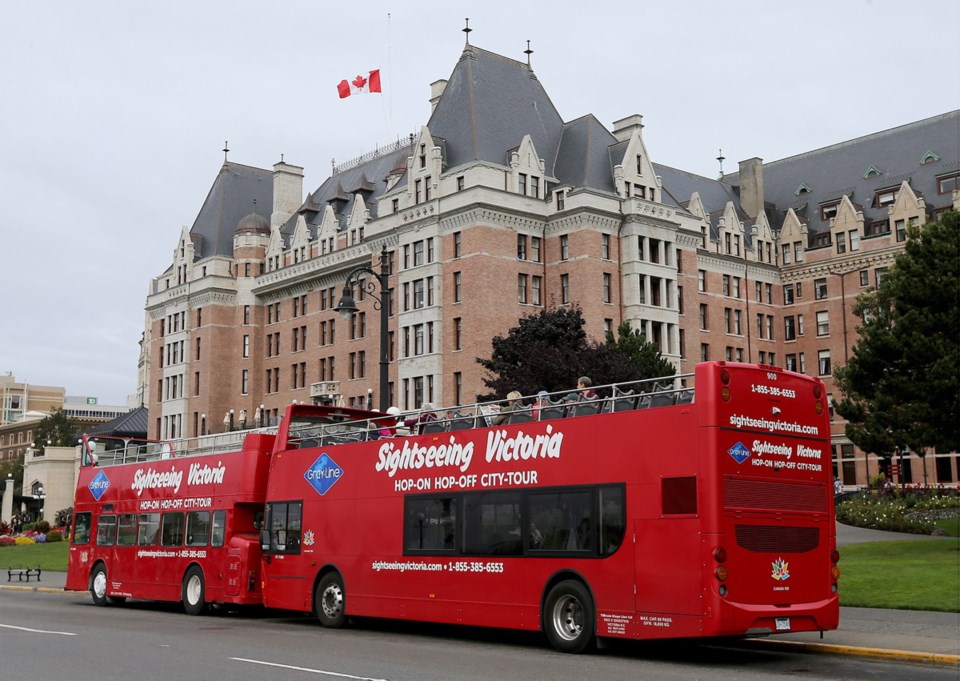Eight vintage double-decker tour buses will end decades of service this week to make way for a new generation of fuel-efficient replacements.
The red British double-deckers, including a Leyland Routemaster dating to 1959, are being replaced by a fleet of modern, quieter and more comfortable Alexander Dennis Enviro buses.
Starting Saturday, the classic buses used as part of Gray Line Sightseeing Victoria’s Hop-On, Hop-Off CitySights Tour, operated by Wilson’s Transportation, will be replaced by the new vehicles.
The tour buses stop at such landmarks as the Empress Hotel, Craigdarroch Castle and Oak Bay Village.
The time was right to retire the buses, which are plagued with aging exhaust systems that are challenging to repair, said John Wilson, president and CEO of Wilson’s Group of Companies.
“They’ve been a big part of the English character we have in town, but, unfortunately, they’re older,” Wilson said.
He said his team explored diesel conversions before opting to make a multi-million dollar capital investment in new buses.
“We realized that wasn’t going to work.”
The company decided to look for newer, open-top double-deckers that are more comfortable and better for the environment.
One of the new vehicles was in operation during the summer and has provided an improved customer and driver experience, he said. “It’s win-win across the board.
The diesel-fuelled Enviro 400 buses meet the highest standard for allowable emissions, reflecting his company’s commitment to help reduce greenhouse gases, Wilson said.
Victoria Mayor Lisa Helps applauded the company for doing its part to help the city meet its environmental objectives.
“The changes that Wilson’s is making are in line with the city’s climate leadership plan of 100 per cent renewable energy by 2050,” she said.
The transition doesn’t mean the current fleet of buses will roll into oblivion, however. Wilson said they could be used in parades, parked as displays or made available to collectors.
“We’re not destroying them by any means, but we’re going to look at an electric-conversion program. It hasn’t been done before, but we’re going to try,” he said.
The company is in the process of converting a mini-coach vehicle to run on electricity. If that works out, it hopes to do the same for the older double-deckers.
Tourism Victoria CEO Paul Nursey praised Wilson’s initiative, describing the investment as a huge vote of confidence in the region. “It takes entrepreneurial courage to make these kinds of investments, and we need to demonstrate that they get return for their capital.”
He said the newer buses meet the standards today’s travellers have come to expect.
“Victoria is truly taking its place as a global destination,” Nursey said. “We’ve gone from a ‘quaint’ to a ‘global’ destination, with renovations to the Empress and many other things.”
A report just released by Chemistry Consulting Group noted significant growth for Victoria’s tourism industry in August compared with last year.
Average August hotel occupancy rates climbed to 90.76 per cent, compared with 88.14 per cent in August 2016. B.C. Ferries vehicle traffic on the Swartz Bay-Tsawwassen route rose to 247,415, up from 234,781 in August 2016.



